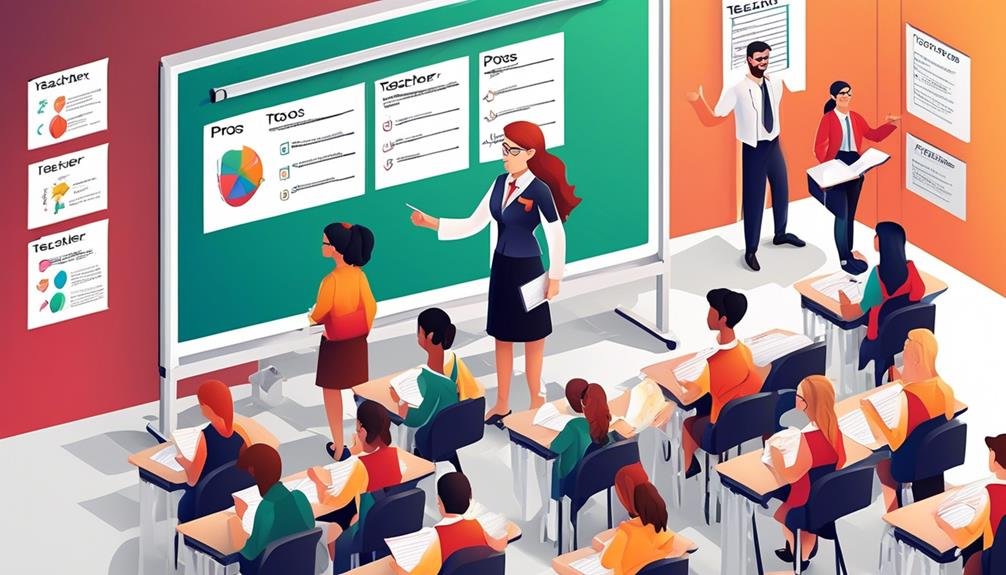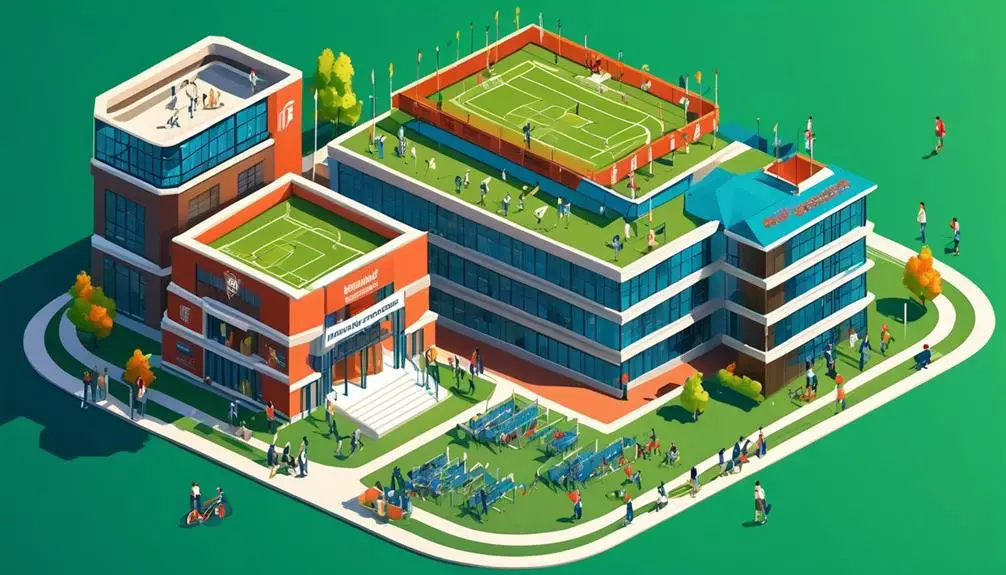The practice of ranking high school students based on their academic performance has been a long-standing tradition in many educational systems. While it aims to recognize and reward excellence, it also raises pertinent questions about its impact on students' motivation, mental well-being, and future prospects.
As the debate surrounding the pros and cons of this system continues to unfold, it is essential to consider the multifaceted implications it carries for the holistic development of young individuals. From the influence on college admissions and scholarships to the potential long-term effects on career success, the ranking of high school students is a topic that demands thoughtful consideration and analysis.
Key Takeaways
- Academic rankings can foster a drive for excellence and encourage students to strive for academic success.
- However, an overemphasis on rankings may lead to excessive stress, unhealthy comparison, and a narrow focus on grades.
- High levels of stress and pressure to perform well academically can negatively impact students' mental health and overall well-being.
- Constant comparison based on academic performance can contribute to feelings of inadequacy, erosion of self-esteem, and long-term effects on mental health and self-perception.
Academic Motivation and Competition
Academic motivation and competition play a crucial role in shaping the educational environment, fostering a drive for excellence and intellectual growth among high school students.
They encourage students to strive for academic success, pushing them to excel in their studies.
Competition can spur students to work harder, set higher goals, and develop a strong work ethic.
However, it is important to ensure that competition does not lead to excessive stress or unhealthy comparison among students.
College Admissions and Scholarships

As students prepare for the transition to higher education, the process of college admissions and securing scholarships becomes a pivotal aspect of their academic journey.
High school rankings can play a significant role in college admissions, potentially influencing acceptance into competitive programs. Similarly, scholarships often consider academic performance when awarding financial aid.
However, overemphasis on rankings may lead to a narrow focus on grades, potentially overshadowing other valuable aspects of a student's profile.
Student Stress and Mental Health
What impact does the pressure of high school rankings and academic expectations have on students' mental well-being and stress levels?
- Mental Well-being
- High levels of stress can lead to anxiety, depression, and other mental health issues.
- Constant pressure to perform well academically can negatively impact students' overall well-being.
This pressure can create a toxic environment where students' mental health is compromised in pursuit of academic success.
Self-Esteem and Peer Comparison

The relentless emphasis on academic achievement and high school rankings not only impacts students' mental well-being but also contributes significantly to the erosion of their self-esteem and the detrimental effects of peer comparison.
Constant comparison with peers based on academic performance can lead to feelings of inadequacy and lower self-worth. This can have long-term effects on students' mental health and their ability to develop a positive self-concept.
Educational Equity and Fairness
Ensuring educational equity and fairness for all high school students is a fundamental aspect of fostering an environment that promotes equal opportunities for academic success.
- Equitable Resource Allocation:
Providing adequate resources and support for students from all backgrounds.
Addressing disparities in funding, facilities, and educational materials.
This fosters a level playing field and empowers students to achieve their full potential, regardless of their socioeconomic status or background.
Teacher and School Evaluation

Amidst the pursuit of educational equity and fairness, the evaluation of teachers and schools plays a vital role in maintaining an environment conducive to academic growth and opportunity for all high school students.
Effective teacher evaluation ensures quality instruction, supports professional development, and ultimately enhances student learning.
Similarly, school evaluation provides valuable insights into areas for improvement, resource allocation, and overall effectiveness, fostering a culture of continuous improvement and accountability.
Parental Pressure and Expectations

Parental expectations and pressure exert a significant influence on the academic performance and well-being of high school students, shaping their educational experiences and outcomes.
- Positive Influences:
- Encouragement to excel academically
- Setting high but achievable goals
- Negative Influences:
- Excessive pressure leading to stress and anxiety
- Unreasonable expectations causing a fear of failure
Impact on Extracurricular Activities

High school students' participation in ranking systems may significantly affect their involvement in extracurricular activities, thus influencing their overall personal and academic development.
Students striving for higher ranks may prioritize academics over extracurriculars, missing out on character-building opportunities.
Conversely, ranking systems could motivate some students to excel across various domains, enhancing their extracurricular engagement.
However, excessive focus on rankings may lead to stress and burnout, impacting students' holistic development.
Alternative Assessment Methods

The limitations of traditional ranking systems have prompted educators to explore alternative assessment methods that provide a more comprehensive and nuanced evaluation of students' academic and personal development.
- Alternative assessment methods include:
- Performance-based assessments
- Portfolios and exhibitions
These methods allow for a more holistic understanding of a student's abilities and potential, going beyond standardized test scores and class rankings.
Long-Term Effects on Career Success

The long-term effects of high school ranking on career success are multifaceted.
One key point to consider is the impact on career opportunities, as a high school ranking may influence the types of opportunities available to individuals.
Additionally, there is a potential correlation between high school ranking and salary potential, which can have lasting implications for individuals as they progress in their careers.
Career Opportunities Impact
Given the substantial impact of academic performance on future career opportunities, it is crucial to examine the long-term effects on career success for high school students.
- Positive Effects
- Increased likelihood of securing well-paying jobs
- Access to higher education and professional development opportunities
- Negative Effects
- Limited career options due to lower academic achievement
- Potential barriers to career advancement
Salary Potential Correlation
Examining the correlation between academic performance in high school and long-term salary potential is crucial for understanding the impact on career success.
Studies have shown that high school academic achievement is linked to higher earning potential in the long run.
Students who perform well in high school are more likely to pursue higher education, leading to increased career opportunities and higher-paying jobs.
This correlation emphasizes the importance of recognizing and rewarding academic excellence in high school.
Conclusion
In conclusion, the pros and cons of ranking high school students are complex and multifaceted. While academic competition can motivate students to excel, it can also lead to increased stress and mental health issues.
College admissions and scholarships may benefit from ranking, but it can also perpetuate inequality and unfairness. Alternative assessment methods should be considered to ensure a balanced approach.
The long-term effects on students' career success should also be carefully evaluated.









